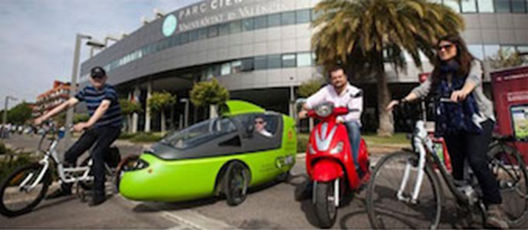Four research projects of the Universitat de València will be financed by the European programme Interreg Mediterrani, in the framework of the first call for modular projects (2014-2020), which has recorded a high participation of research organisms of all around Europe. The approved projects, which have been managed by the Office of the Vice-principal for Research and Science Policy, through its Office of Research European Projects of the Research service, address issues about mobility, biodiversity and culture economics.
These projects are: ‘CAMP-sUmp. Campus sustainable university mobility plans in MED areas’, directed by Pedro Valero, professor of the Behavioural Sciences Methodology Department and member of the University Research Institute on Traffic and Road Safety (INTRANS); ‘MEDSEALITTER. Developing Mediterranean-specific protocols to protect biodiversity from litter impact at basin and local MPAs scales’, presented by Juan Antonio Raga, professor of the Zoology Department and director of the Parc Científic of the Universitat; ‘OPEN DOORS. Designing a network of cOOperating cReative communities for developing a Sharing economy’, a research carried out by Pau Rausell, tenured university professor of Applied Economics and member of the Research Unit in Culture Economics (ECONCULT); and ‘CREATIVEWEAR. Creative Clothing for the Mediterranean Space’, of Raül Abeledo, full-time trainee lecturer (doctor) in Applied Economics and member of ECONCULT.
Another project can be added, in the framework of the Interreg Sudoe programme, which corresponds to the fight point against climate change: ‘TRITIUM. Design, construction and development of automatic stations for the monitoring in real time of low radioactive levels of tritium in water’, whose main researcher is professor José Díaz, professor of Atomics, Molecular and Nuclear Physics.
The Interreg Mediterráneo Programme wants to promote a sustainable growth in the Mediterranean area, encouraging ideas and innovative practices, as well as promoting a reasonable use of resources. In addition, it favours social integration since it is an integrated cooperation and based on the territory. Its main points of action are Innovation; Economy low in carbon; Natural and cultural resources; and Governance.


